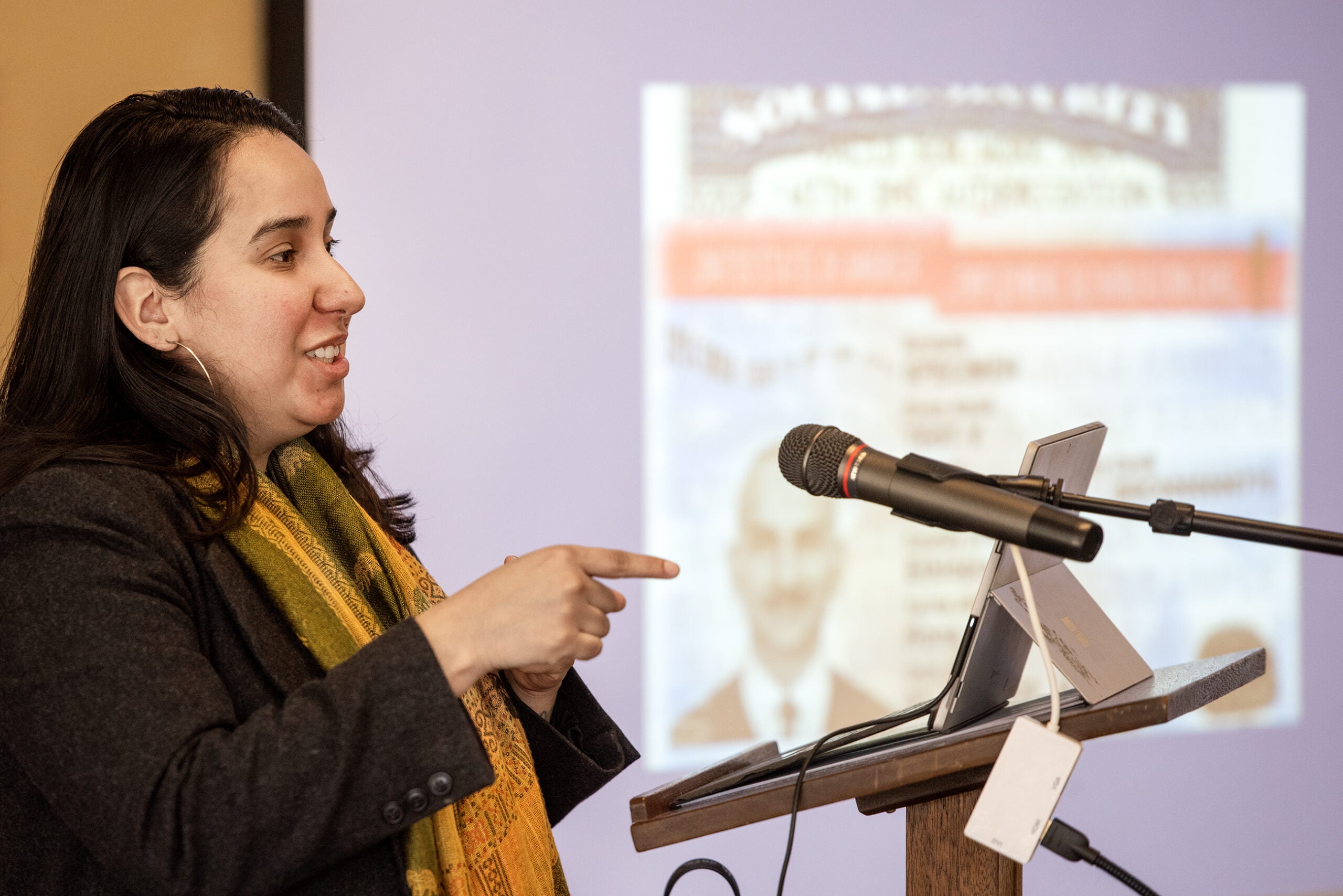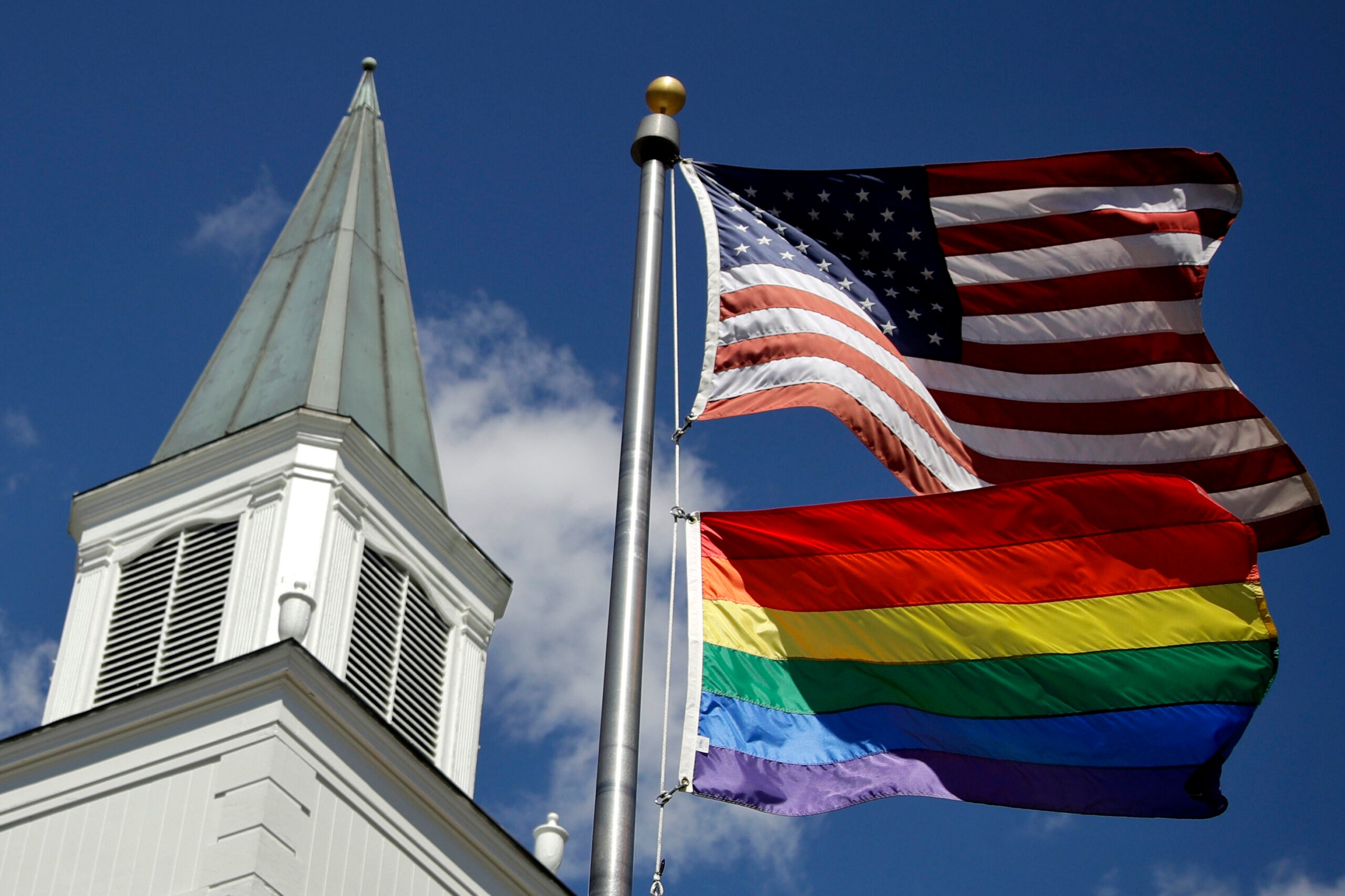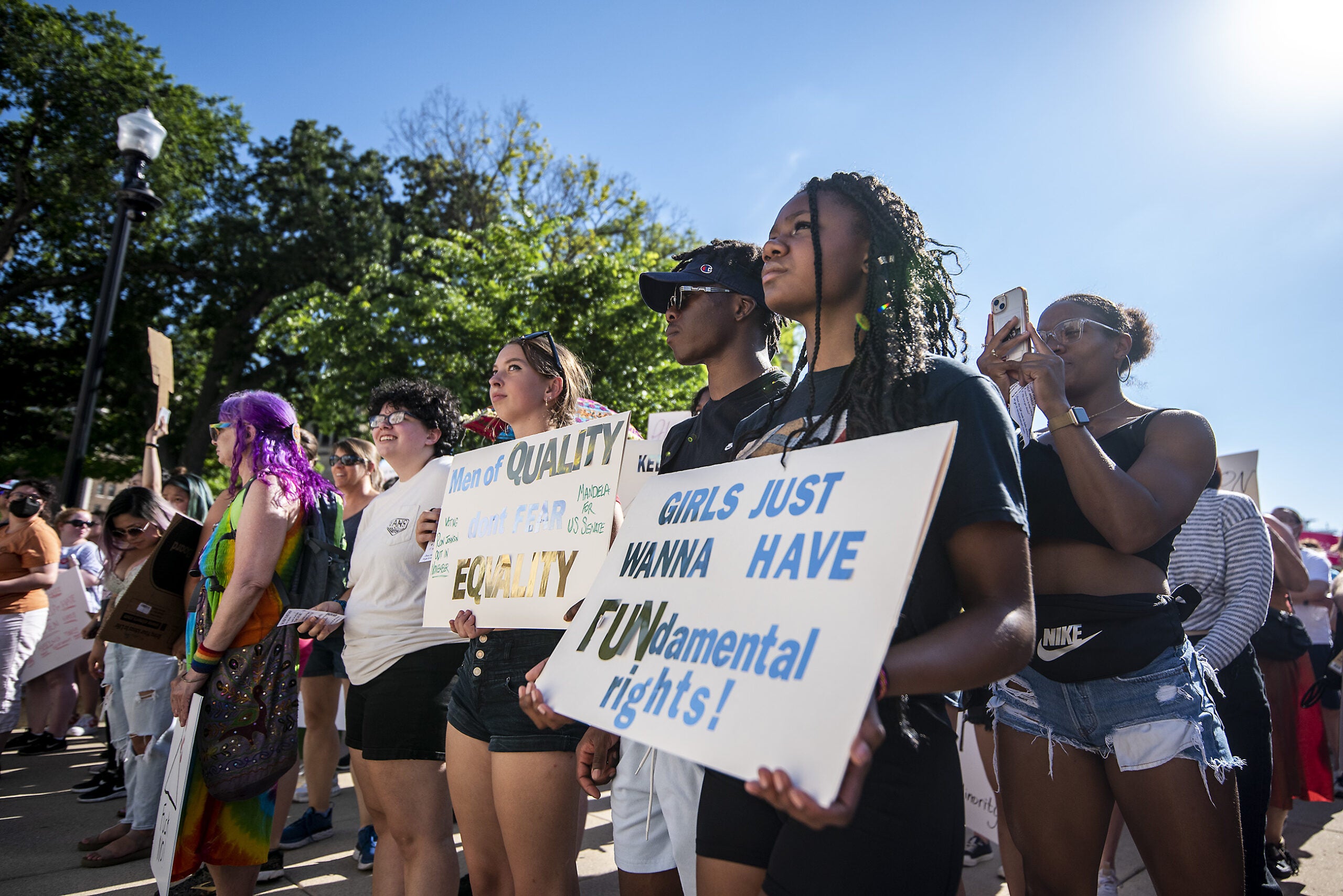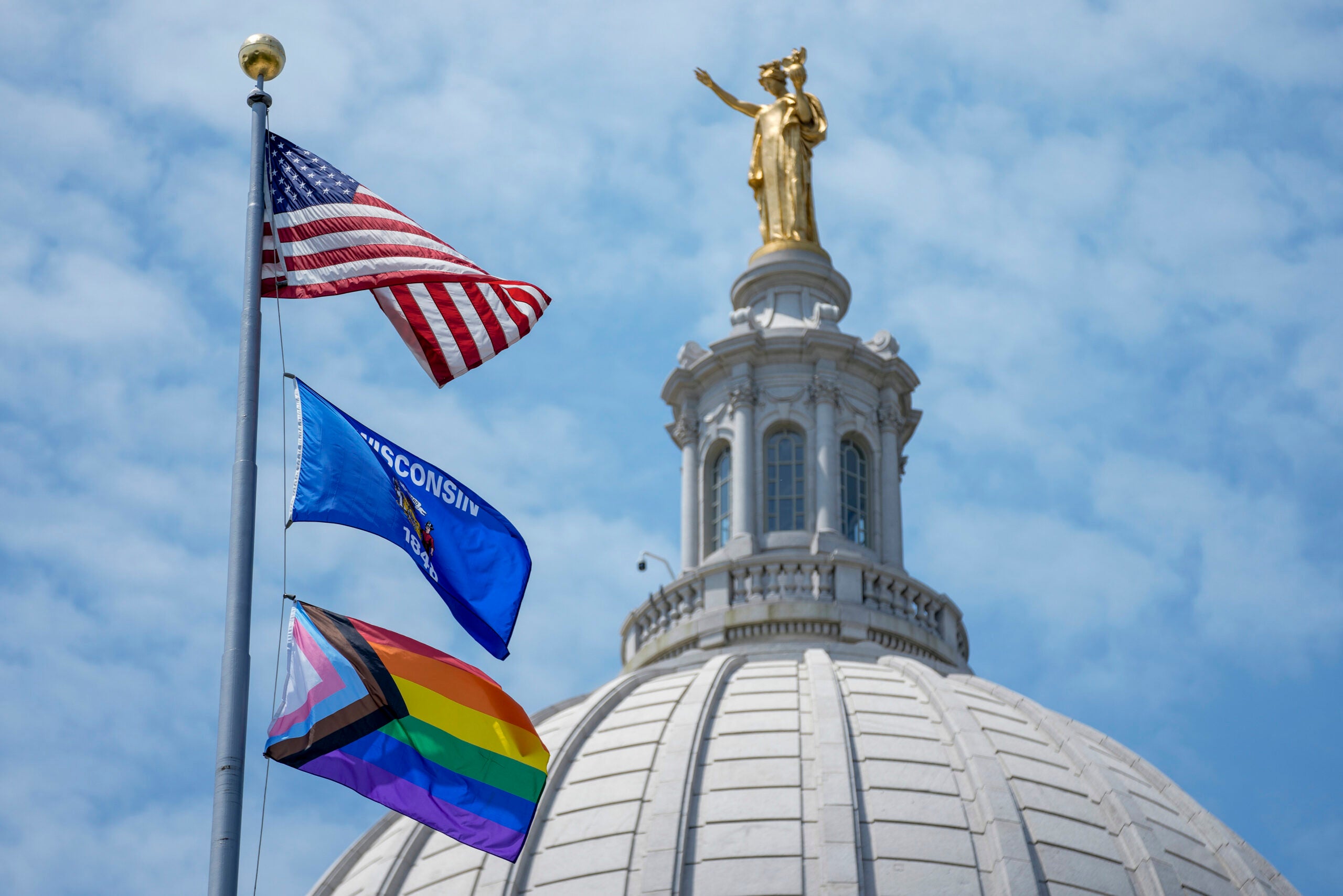What happens when you combine fermentation with a little bit of art and applied science, amid a backdrop of Wisconsin scenery? We find out about what this year’s Fermentation Fest is all about. And Monday morning, the U.S. Supreme Court declined to review Wisconsin’s same-sex marriage case, making Judge Barbara Crabb’s ruling that a ban is unconstitutional the law of the land.
Featured in this Show
-
Professor Says U.S. Supreme Court's Gay Marriage Decision Isn't Surprising
The U.S. Supreme Court’s decision not to review a string of cases seeking to block same-sex marriage, including one in Wisconsin, leaves several lingering legal questions unanswered, according to one legal analyst.
Kimi King, professor of political science at the University of North Texas and a legal affairs correspondent for WPR’s “Central Time,” said that while the court’s decision on Monday effectively allowed same-sex unions to become legal in several states, many important questions remain.
“No one should be surprised by the non-decision because the Supreme Court receives, every year, between 8,000 and 10,000 requests for review, and of that, they accept 85 to 100,” she said. “So statistically, it is not surprising.
“But, when you look at the landscape of gay marriage over the last four to five years, it is causing quite a bit of uproar around the country because they decided to, in essence, send this message: ‘Don’t call us, we’ll call you’ when it comes to gay marriage,” she said.
King said that the reasons the court opted not to take up the case remain unknown.
“The court rarely gives reasons why they don’t accept a case … the court does not have to give any reason,” she said. “The court has to have what is known as the rule of four when a case is to be accepted, which means four of the nine justices must be in agreement that the case should be heard.”
She added that one might speculate that the reason the court didn’t take up the case perhaps stems from divisions among the justices.
“It is a very small indication that perhaps they don’t have the kind of coalitions that they want for reaching a definitive conclusion. It is alternately, the case that the Supreme Court doesn’t necessarily think that in this particular case that they need to weigh into it,” she said.
Regardless of the justices’ motivations, King said their decision has wide-ranging ramifications.
“What is really striking about this decision is now, their refusal to hear the case means that same-sex marriage is now legal technically in 30 states plus the District of Columbia,” she said.
King said that the decision highlights a lack of uniformity in terms of how each of the states’ view same-sex marriage.
“We’ve got the United States of divided states,” she said. “What the net impact is, is that about 59 percent of the country will live in states allowing same-sex marriage and the remainder live in states that do not have the issue resolved.”
She added that she doesn’t think the court is done weighing in on this issue, saying there are about “four to five innings” left in the game nationally.
King said thinks the court’s decision might be a delaying measure.
“I think that what the court’s doing is that it is bidding its time because the more difficult legal issue, which is that of the Full Faith and Credit Clause (of the Constitution) – whether or not states have to recognize each other’s same-sex or no same-sex marriage provisions – is the real issue that the court will have to face,” she said. “If the court refused to hear it here, I see nothing in those other cases that are going to allow them to hear it on down the road, with the exception of one state being required to accept the same-sex marriage of another state for either marital purposes or divorce purposes.”
-
Farms, Fermentation, And Art Come Together At Wisconsin Festival
The Fermentation Fest in Reedsburg brings together agriculture, art, and applied science. The director of the event joins the show to explain the event’s mission.
-
Supreme Court Declines Wisconsin's Same-Sex Marriage Case, Marriages Begin
Wisconsin’s marriage equality story is over. Same-sex marriage is legal and constitutional in the Badger State. The Wisconsin Department of Justice’s last opportunity to appeal Judge Barbara Crabb’s decision that the state’s ban was unconstitutional was declined by the U.S. Supreme Court Monday morning. WPR’s state capital reporter Shawn Johnson joins Central Time.
Episode Credits
- Rob Ferrett Host
- Veronica Rueckert Host
- Galen Druke Producer
- Kimi King Guest
- Donna Neuwirth Guest
- Shawn Johnson Guest
Wisconsin Public Radio, © Copyright 2024, Board of Regents of the University of Wisconsin System and Wisconsin Educational Communications Board.




